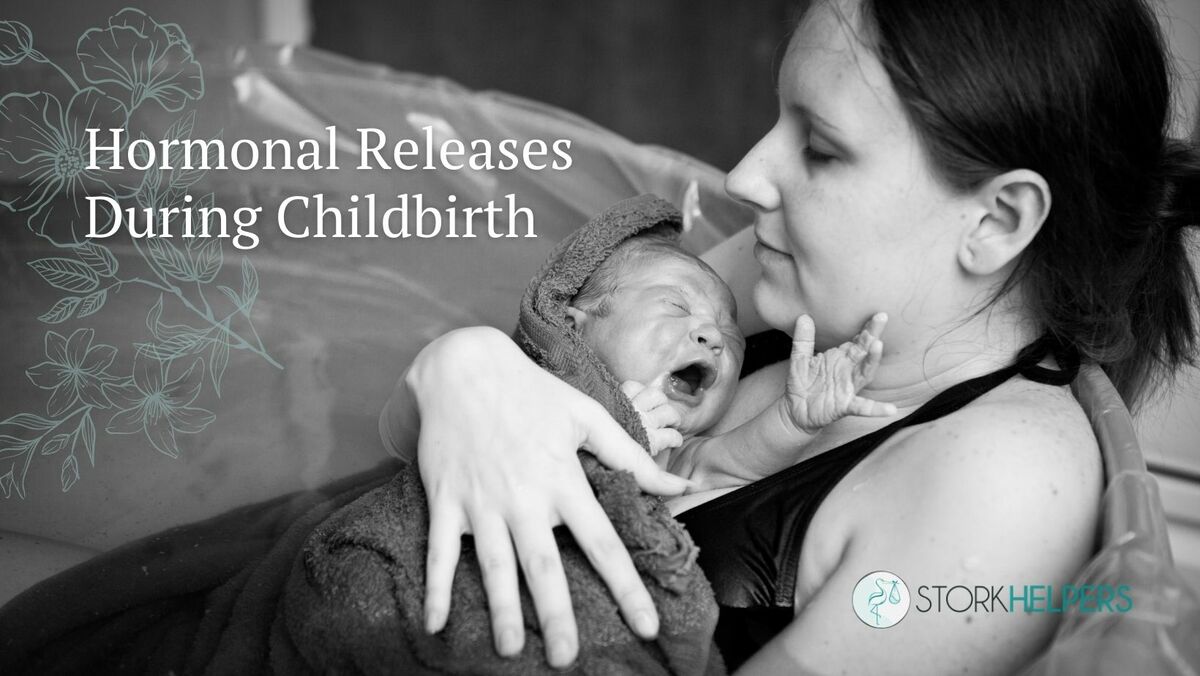Hormonal Releases During Childbirth

Starting at the moment of conception, mama and baby begin to develop a deep bond.
Both are born with the ability to initiate labor, engage in breastfeeding, and develop a deep attachment to one another.
It is the flow of hormones that drives and initiates these processes. When selecting a provider, you must choose one that understands how to work with these hormones without disrupting their processes.
A woman does not have to be taught how to give birth – although instruction and practice can certainly be beneficial – it can be extremely helpful for a mother to know the hormones and processes that are taking place when she is delivering her child.
In this post, we will go over some of the hormones that are released while mama is giving birth and what she can expect to feel from those hormones.
The Hormones You Can Expect during Childbirth
Childbirth is one of the most intense experiences in a woman’s life.
In the past, women had no medical painkillers to help assist them in childbirth. Instead, the body releases hormones to help communicate between mama and baby, block pain, and help mama immediately form a bond with her baby.
Birth hormones are essentially message-carrying chemicals that your body makes. Your baby is making hormones too.
Mama and baby's hormones mix and help make labor go more smoothly for both parties.
Let’s take a look at some of the hormones that mama and baby’s bodies will make before and during childbirth.
Oxytocin
Known as the love hormone, oxytocin is responsible for initiating contractions during labor and the release of milk for breastfeeding. This hormone is responsible for making us feel good and can even block pain during labor.
Endorphins
When facing stress and pain, endorphins help your body relax and stimulate pain relief. Your body will often produce a surplus of endorphins near the end of pregnancy. For those mamas who choose not to use pain medications during labor, endorphin levels continue to rise steadily and steeply throughout the baby's birth.
Adrenaline
Often thought of as the fight or flight hormone, adrenaline is a hormone that helps ensure human survival. Mamas who feel fear during labor will produce a high amount of adrenaline. Providers will need to watch mama’s adrenaline levels as if they get too high labor can slow or stop altogether. Early in our evolution, this labor stoppage helped a woman move to a safer location if danger was present.
Prolactin
Thought of as the mothering hormone, prolactin increases slowly during pregnancy and peaks when labor begins naturally. It is thought to help women prepare their bodies for breastfeeding after birth. In addition, prolactin helps move labor along and prepares the baby’s body for life outside of the womb.
What do These Hormones Feel Like?
Labor and childbirth produce a tremendous and unique mix of hormones that is shared between mama and baby. This unique brew takes both mother and child to the height of love and connection.
This hormonal shift last for only a few minutes, but the love is more intense than anything mama will feel throughout her life. It starts during the last contractions of birth and sweeps your baby into the world with a tremendous rush of adrenaline that mama and baby share.
This rush of noradrenaline (which is a part of the adrenaline family) helps ensure that the baby does not suffer from a lack of oxygen. It also serves as a sort of wake-up call for the baby, telling the new body that it is now out in the open world and needs to begin breathing on its own.
Adrenaline and oxytocin are responsible for the signature love bond that many mothers describe immediately after delivery. They often rouse feelings of commitment, protection, and ownership in mama for her new baby. Endorphins help fill in the gaps and block any residual pain to ensure that mama and baby share a moment of pure peace and comfort.
A Better Understanding of Your Own Body
Understanding the hormones that your and your baby's bodies release during childbirth is key to understanding how you will feel and what you should expect from yourself during labor.
Many mamas choose not to use painkillers or epidural during childbirth to not interfere with their natural hormones.
Whatever your decision, it is always a good idea to have an experienced mentor to help you through the process.
The perfect guide for you may just be Tamara at Stork Helpers. At Stork Helpers, we understand the toll pregnancy takes on a mama's body and lifestyle. We help you through this transitional period to ensure that both mama and baby are safe and healthy during childbirth.
If you need a mentor that will guide you through childbirth, never judges you, and always supports your decisions, then it is time to reach out to Stork Helpers.

